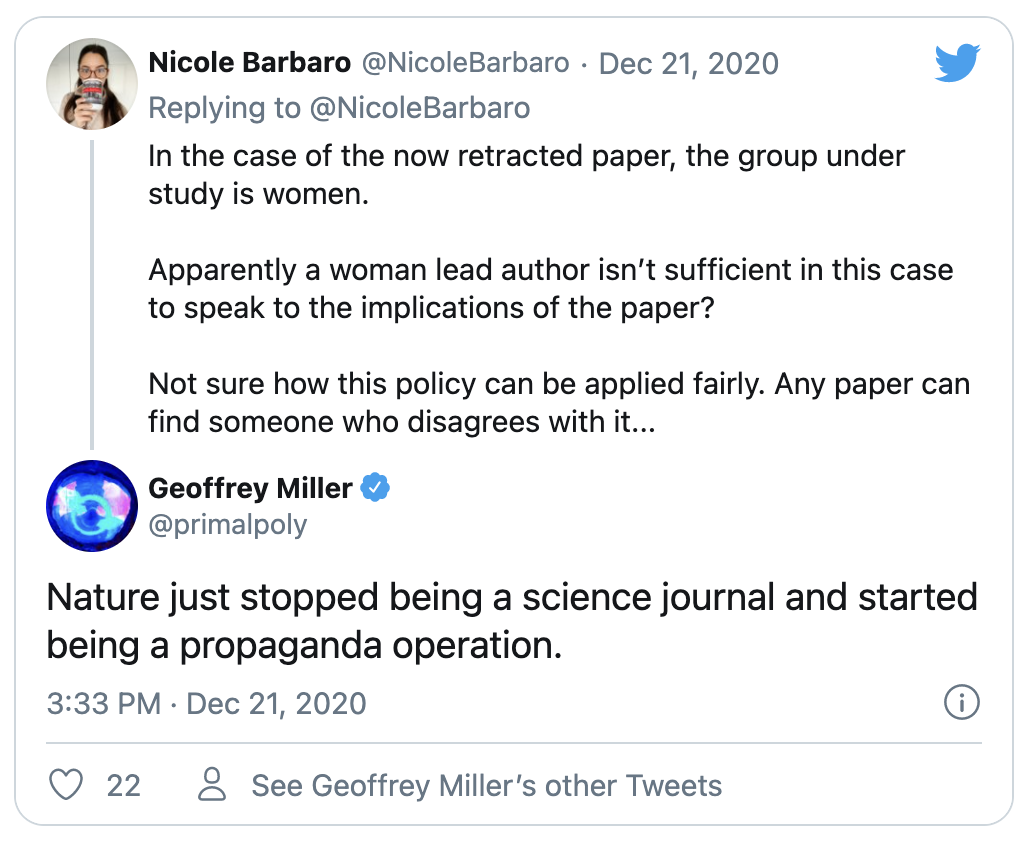Nature Communications, a prominent science journal, has now revised its internal guidelines after a recently-published paper caused outrage on Twitter as it concluded that male mentors were a better fit for female students. It is worth noting that two authors among the three that had authored the paper about mentorship had both withdrawn their names from the paper as the “conclusions in their current form do not stand.”
Related: Twitter is an echo chamber of insanity and it’s impacting academia
After the Twitter outrage, going forward, Nature Communications will be considering “the dimension of potential harm” before publishing any paper
The journal’s move to start considering “potential harm” did not sit well with many. A research scientist at the Western Governors University Labs, Nicole Barbaro, tweeted about the new changes in the guidelines and said that she wasn’t sure how the policy could be applied “fairly.”
“Any paper can find someone who disagrees with it,” read a part of Barbaro’s tweet. Replying to it, evolutionary psychologist and author Geoffrey Miller tweeted saying that Nature Communications was no longer a science journal and “started being a propaganda operation.”
Miller, in an email he wrote, said that journal editors as well as reviewers, when dealing with papers connected to social issues, expect some or the other kind of “virtue-signaling” about woke and progressive values. “This is the key way that academia is being politically captured, year by year, hire by hire,” wrote Miller.

He also pointed out a very valid concern about the new guidelines – that they would marginalize researchers from non-Western countries. A researcher from the Aligarh Muslim University in India, Mohammad Abdullah Sarkar, tweeted expressing his concerns about Nature’s latest guidelines and how they would hamper research work and activities.
“I come from a third world country and I am a Muslim. I do not understand how gender politics works out in the West,” said Sarkar.










